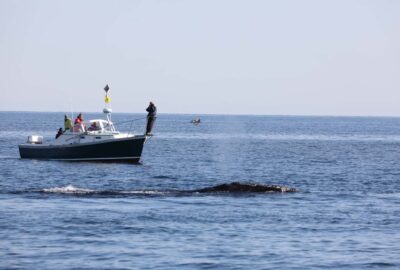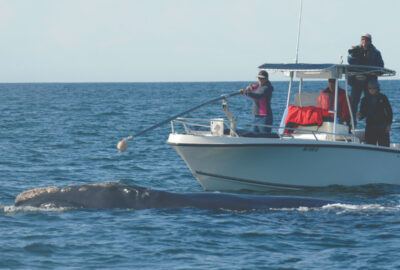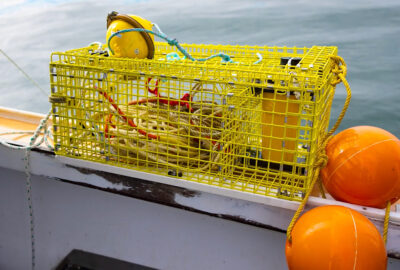We are SOLD OUT of tickets for today, Saturday July 5th.
North Atlantic Right Whale Catalog Adds Its 800th Entry
By New England Aquarium on Wednesday, March 13, 2024

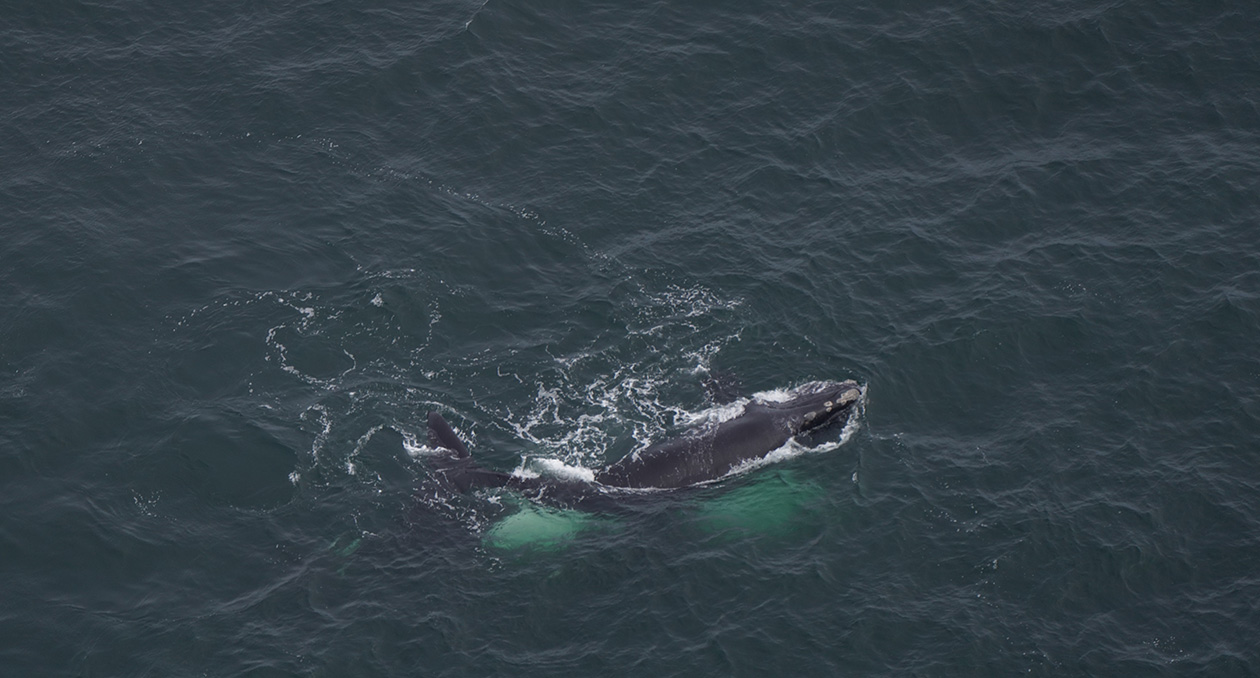
The New England Aquarium’s North Atlantic Right Whale Catalog is celebrating a milestone. The comprehensive archive of right whales both past and present, with documentation and photographs dating back to 1935, has just added its 800th individual to the database.
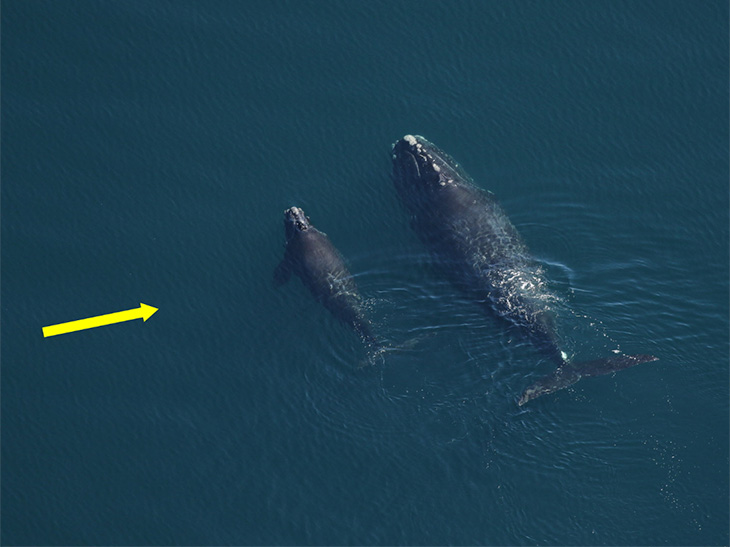
The new whale is Catalog #5193, a three-year-old female and first known calf born to Catalog #3593. Whale #5193 was only seen with her mother once, late in the 2021 calving season off the coast of North Carolina. Eventually, two additional sightings in 2022 were matched to the calf. With only one sighting as a calf, the team was excited to catalog the young whale. Often, more data are needed to create a new entry, but thanks to high-quality photos and good communication between the identification team and aerial survey teams, there was enough information to add #5193.
Catalog #5193’s mother (#3593) has a very sporadic sighting history, seen only five times since 2005, and has never been genetically sampled. Calves will sometimes follow in their mother’s flukeprints—a patch of calm water on the surface of the ocean, formed by the passing of a whale—migrating to similar areas, which in #3593’s case, is a mystery. Despite this, #5193 has been seen several times since. If she continues to be sighted regularly, a future genetic sample could provide some insight into her family line.
With a population estimate of only 360 living individuals, the Catalog has proven vital in efforts to save the critically endangered species. “This is an essential tool in our marine conservation work at the Aquarium. It allows us to document individual whales and their migration patterns from off the southeastern U.S. during calving season to their northern feeding habitats of New England and Canada,” said Philip Hamilton, a senior scientist at the Anderson Cabot Center for Ocean Life at the New England Aquarium. “We can piece together their life stories, track their human-caused injuries, and determine better ways to protect them.”
The Catalog is managed by staff at the New England Aquarium’s Anderson Cabot Center for Ocean Life on behalf of the North Atlantic Right Whale Consortium. There have been over 650 contributors to the database, which welcomes photo submissions of sightings from the public. The catalog holds more than two million photographs and distinctive identification drawings of each whale. Researchers differentiate between individual whales by natural markings of cornified tissue, called callosities, on top of their heads. Each whale has a unique callosity pattern, just as humans have unique fingerprints. Another identifier can be injuries from human activities like entanglement and vessel strikes, which create scars that can last the whales’ lifetime.
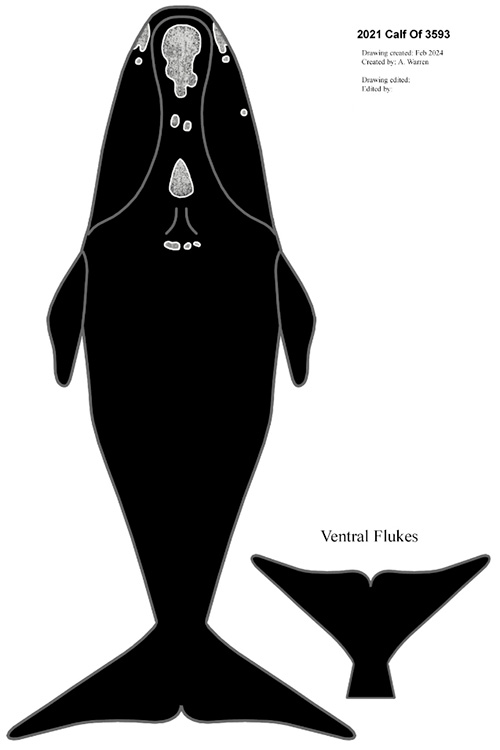
Visitors to the website can find specific whales, identified by number and name, with details such as sex, physical markings, and last sightings. As photos of right whales are submitted, researchers compare markings and match them to whales in the Catalog, creating extensive sighting histories. This helps the team monitor population demographics, mortality, reproductive success, habitat use patterns, trends in health, and rates of injuries.
For over 40 years, the Aquarium’s right whale team has extensively researched and tracked the endangered North Atlantic right whales with the photo-identification catalog. Understanding the whales helps the team collaborate with fishermen on new techniques to reduce deadly entanglements in fishing gear and work with lawmakers locally, nationally, and internationally to advocate for protections for these majestic animals. “And, it all begins with the Catalog,” Hamilton said.
If you spot a North Atlantic right whale, you can submit photos through the Catalog’s website: http://rwcatalog.neaq.org/#/submitphotos. Also, be sure to maintain a safe distance and report the sighting to the NOAA hotline: 866-755-6622.

